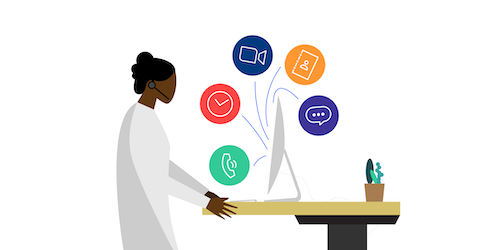In a world where we are always running out of time, productivity has become the holy grail. It is the ability to produce more with less time and effort. However, increasing productivity is about more than just working harder or longer. It is about working smarter and using the right strategies backed by science. Here are ten productivity strategies that are supported by research:
Set specific and challenging goals:
One of the best practical ways to increase productivity is to set clear and challenging goals. Research has shown that people who set specific goals are more likely to attain them than those who set vague goals. Additionally, setting challenging goals can motivate individuals to work harder and produce higher-quality work.

Prioritize your tasks:
Knowing which tasks to prioritize can significantly impact productivity. The Eisenhower Matrix is a popular tool to help individuals prioritize tasks based on urgency and importance. Prioritizing tasks can also prevent procrastination and ensure that essential tasks are completed on time.

Use the Pomodoro Technique:
The Pomodoro Technique is a time management method that requires working in focused intervals of 25 minutes, followed by a five-minute break. After four intervals, take a more extended leave of 15 to 30 minutes. Research has shown that regular breaks can help prevent burnout and increase productivity.
Optimize your workspace:
The physical environment in which you work can significantly impact your productivity. A well-organized and clutter-free workspace can help reduce distractions and improve focus. Additionally, adding plants or natural elements to your workspace has increased creativity and reduced stress.

Limit Multitasking:
It can be detrimental to multitask because it weakens concentration and raises stress levels. Productivity may be increased, and stress can be decreased by concentrating on one activity at a time and finishing it before moving on to the next.

Use positive self-talk:
Positive self-talk can significantly impact productivity by increasing confidence and reducing stress. Research has shown that positive affirmations, such as “I can do this,” can help individuals overcome self-doubt and increase motivation. Practising being mindful means giving your full attention to the present moment. It can help individuals reduce stress, improve focus, and increase productivity. Research has shown that practising mindfulness can improve cognitive function and decrease anxiety.

Take care of your physical health:
Physical health is essential for productivity. Regular exercise and a healthy diet can significantly impact productivity by improving energy levels, reducing stress, and increasing focus. Adequate sleep is also crucial for productivity, as sleep deprivation can negatively impact cognitive function and work performance.

Minimize distractions:
Distractions can significantly affect productivity since they make it harder to focus and make you more stressed out. Finding a quiet workspace, turning off notifications on your phone, and eliminating useless computer tabs can reduce distractions and boost productivity.

Learn to say “no”:
Although it can be difficult, learning to say “no” is a necessary skill for productivity. Too many obligations or duties might result in fatigue and reduced productivity. Focusing on one’s most important work can be aided by learning to prioritize tasks and refusing to do things that are not necessary.

In conclusion, productivity is about more than just working harder or longer. It is about working smarter, using strategies that are backed by science. By setting specific goals, prioritizing tasks, using time management techniques, optimizing their workspace, limiting Multitasking, using positive self-talk, practising mindfulness, taking care of their physical health, minimizing distractions, and learning to say “no,” individuals can significantly increase their productivity and achieve their goals.

